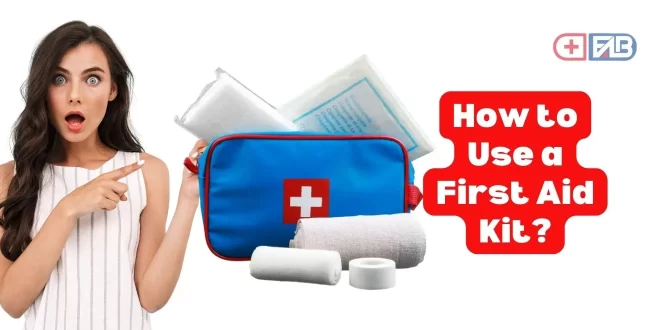The Importance of Influenza Vaccinations in New Jersey: A Comprehensive Guide
During the flu season, it is necessary to recognize the urgency of Influenza vaccinations in NJ. Influenza, simply referred to as the flu, is an uncommonly infectious viral disease that can become very serious, sometimes resulting in death.
So, what’s the best defense against this seasonal threat? The influenza vaccine! Getting a flu shot is probably the most efficient method of preventing flu and its post-effects. In this blog, we will cover the importance of getting vaccinated for flu, both for individuals and the community of New Jersey.
Understanding Influenza:
Influenza is a respiratory disease caused by the influenza virus, which infects the nose and throat and may also extend to the lungs. The symptoms of flu can be different but most often include fever, cough, sore throat, stuffy or runny nose, body aches, tiredness, and headaches.
In severe cases, the flu may develop into a bacterial infection of the lungs and require hospitalization, which can be dangerous for young children, the elderly, the unborn, and people with underlying health conditions.
Importance of Influenza Vaccinations:
Prevention of Illness: Vaccination against influenza is aimed at this ultimate objective – to prevent illness. People may drastically decrease their chances of contracting the flu virus and experience its severe symptoms if they get immunized with the flu shot.
Vaccination triggers the body to develop specific immunity against some of the strains of influenza viruses. Thus, vaccination protects the body from these viruses throughout the flu season.
Protection for Vulnerable Populations: Individuals belonging to specific groups have higher chances of having more serious complications as a result of contracting the flu.
This encompasses tender-age children, old people, pregnant women, people with chronic conditions such as asthma or diabetes, and individuals with weakened immunity.
Vaccinating the most vulnerable groups and using them as a shield is the key to their health safety and reducing the workload of the healthcare systems.
Community Immunity: Vaccinations against influenza are not only an individual protection but also a component of community immunity or herd immunity as well. More than half of the population being vaccinated against the flu creates a barrier and prevents the spread of the virus.
This will protect those who are at a higher risk of getting infected, who cannot be vaccinated, or who may experience complications.
Reducing Healthcare Burden: Flu outbreaks can overstrain healthcare resources and bring into existence cases of clinics and hospitals being confused.
Through enhancing influenza vaccination rates, we can lower the number of hospitalizations for flu and visits to healthcare providers. This way, the healthcare system will not be overwhelmed during peak times of the common cold.
The Impact of Influenza in New Jersey:
Annually, New Jersey faces many public health issues in terms of influenza. The state-wide flu season is acted out during the seasonal flu activity, with the peak period in December- February. Flu-related hospitalizations and fatalities have been a concern during the flu season each year. This proves that prevention, such as vaccination, is a must.
In New Jersey, there is high access to flu vaccines, but vaccinations vary in different communities and districts. Thus, the members of particular communities may lack chances to get vaccines either because of a lack of information, financial issues, or transportation problems. To do so, we should overcome these barriers and reach as many people as possible to get a vaccination shot, which is the key to the health of all New Jersey residents.
Promoting Influenza Vaccination:
To promote influenza vaccination in New Jersey, various strategies can be implemented, such as:
Education and Awareness Campaigns: Public health departments, healthcare workers, and community groups can jointly work toward educating the public on why flu vaccination is a must. This involves some activities, such as informing the public about the efficacy, safety, and availability of the vaccine.
Accessibility: The vaccination campaigns have to be organized, the vaccine has to be available, and there has to be barrier-free access possible for everyone. The vaccine delivery could cover multiple community settings, and vaccines will be accessible at a reduced or no cost. In addition to that, outreach programs to underserved populations can be expanded.
Healthcare Provider Recommendations: Healthcare professionals are the key persons in their patients who recommend and administer flu vaccines to them. Promoting immunization at the facilities of health care providers every day may be one of the factors that will affect the number of those who get vaccinated.
School and Workplace Programs: The implementation of the influenza vaccination program in schools, workplaces, and other community settings is one of the most effective ways to include the larger part of the population in the vaccination process. Employers may make vaccination drives or provide some advantages to employees and students to get a vaccination.
Conclusion:
The best method to prevent the flu for yourself, your loved ones, and your community is to get vaccinated. So, let’s fight the flu by letting go of our fears and accepting the truth!
To obtain influenza vaccination in NJ, stay informed and go to the best vaccination clinic in NJ, such as NJ Doctors Urgent Care. The best part here is that you can visit without an appointment; just walk in and don’t have to wait for a long time. So, for more details, contact them or browse their website today!



